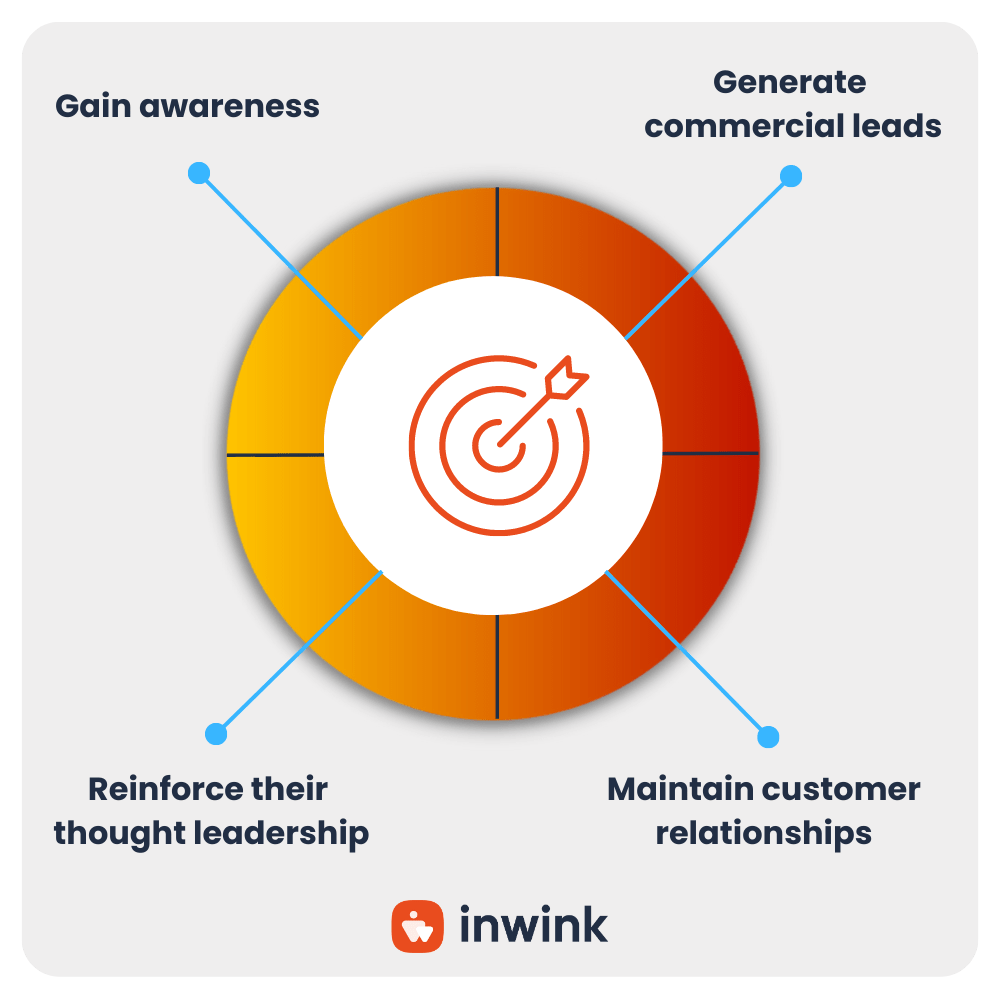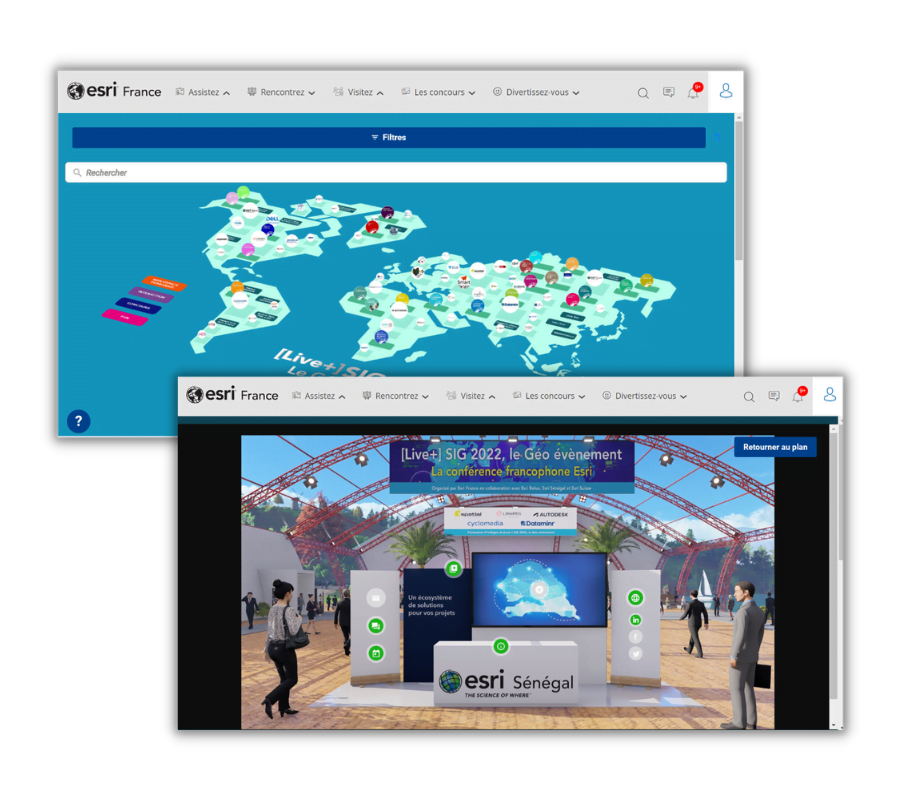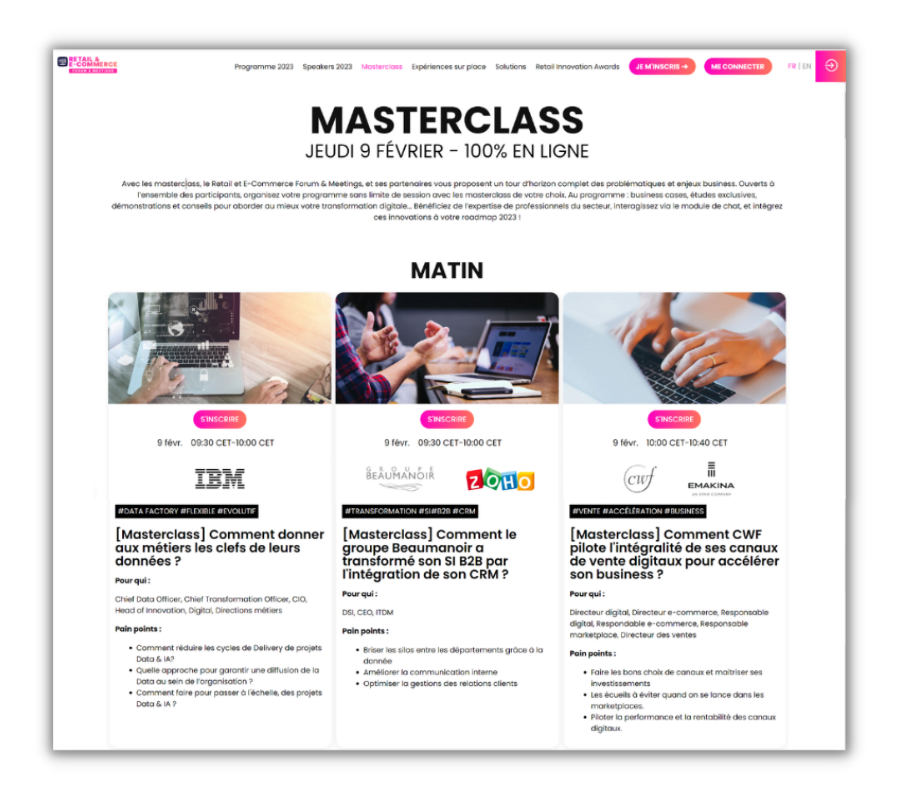The expectations of an event’s partners or sponsors have changed a lot in a few years. With the multiplication of digital events caused by the pandemic, the perception of value of online events has been particularly altered. As a result, partners tend to think that a digital event generates a much lower ROI.
How can we convince them to continue sponsoring digital events? If the challenge is big for event organizers, there are still levers on which it is possible to play.
This article aims to review these best practices.
Why do brands invest as event sponsors ?
In order to promote your online events to your partners and sponsors, you need to start by understanding the goals they have in becoming partners.
The 4 main reasons for a brand to sponsor an event are:
- Gain awareness
- Generate commercial leads
- Reinforce their thought leadership
- Maintain customer relationships

Even if these objectives are normally carried out with face to face events, doing them through the digital format can bring out interesting aspects.
The specificities of digital events to promote partners
1) Awareness: make your partners visible at every stage of the event
Digital events offer many opportunities in terms of getting visibility to your partners:
- Email communications to registrants: highlight logos, presentation texts or value-added content.
- Content sponsorship: propose partnerships to lead a session or sponsor a thematic course.
- Partner dedicated pages: display a web page for each partner, like a virtual booth, to showcase their content and present their product or service offers.
- Advertising purchases: market advertising inserts at strategic locations on the event site, at the start of sessions, or between two video sessions.

Example of virtual booths proposed by Esri France teams to the partners of the SIG 2022 event.
2) Commercial lead generation : more specific data, and digitally adapted ways of meeting
Partners can generate sales leads in several ways at a digital event:
- Following the sessions they present
- Following business meetings they have with participants
- Following contact or information requesets done live from the chat
Even though there’s no physical meeting, these opportunities are just as real than during face-to-face events!
To convince your potential partners of this, here are several ideas you can put forward:
- Online, the data collected is more thorough. For example, you can track the time spent on a session, the questions asked, etc.
- Online, the sales cycle can be spread out over a longer period. The contact with the audience does not stop at the end of the event, since the site remains online, and the replays can be consulted afterwards. Lead generation can therefore continue for longer.
- The format of business meetings through appointments are digitally adapted, thanks to videoconferencing.
- In addition, you give your partners every chance to succeed in their business meetings by adjusting to the behavior of participants in this format.
3) Thought leadership and customer relations: opportunities to speak out
Hosting a session or participating in an online roundtable allows partners to demonstrate their expertise through the testimony of a client. This practice also strengthens the ties that bind them.
Another advantage of digital is that once the session has been recorded and broadcast either live or simulive, it is available as a resource for the partner, who can reuse this expert content later, on their own site, in other replay resources, etc.
The partner can then use this content in other ways to make it live in the long term.

Examples of partner-sponsored sessions at the Retail & e-Commerce Forum & Meeting organized by the HUB Institute.

